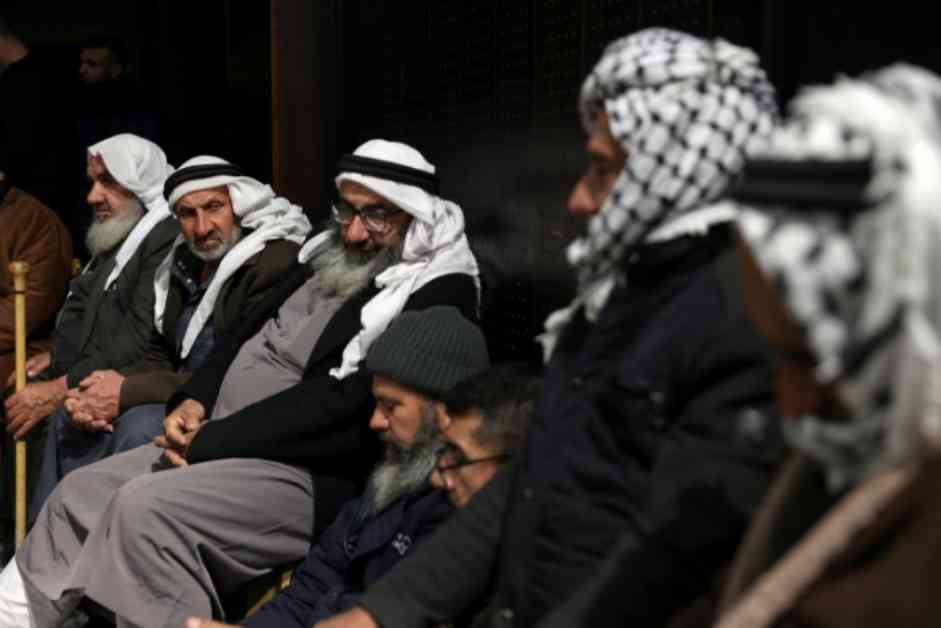Hamas Warns Gaza Truce in Jeopardy Due to Israel’s Prisoner Delay
In a recent turn of events, Hamas has expressed concerns regarding the endurance of a five-week-old Gaza truce, citing Israel’s delay in releasing Palestinian prisoners as the primary cause for alarm. The situation has been further exacerbated by the contentious manner in which Israel has handled the release of Israeli hostages. The delicate balance that has been maintained since the truce’s initiation in January is now under threat, with the first phase of the ceasefire set to conclude in early March. The subsequent phase of the agreement remains shrouded in uncertainty as the parties involved have yet to finalize the details.
Israel’s decision to postpone the release of Palestinian prisoners in exchange for the release of Israeli hostages has drawn sharp criticism from Hamas officials. The delayed release has not only strained the fragile peace but has also raised doubts about the commitment of all parties to uphold the terms of the agreement. Bassem Naim, a senior Hamas official, has underscored the urgency of the situation, cautioning that any further delays could jeopardize the entire truce. He has called upon the mediators, particularly the Americans, to exert pressure on Israel to adhere to the agreement and expedite the release of Palestinian prisoners.
Israeli Military Escalation in the West Bank
Against the backdrop of escalating tensions, Israel has announced an escalation of military operations in the occupied West Bank. This move comes in response to what Israel perceives as repeated violations by Hamas, including what Israeli Prime Minister Benjamin Netanyahu has described as “humiliating ceremonies” surrounding the release of Israeli hostages. Israel’s decision to delay the release of Palestinian prisoners has been framed as a response to Hamas’ alleged breaches of the ceasefire agreement.
One of the most significant developments in this escalating situation is Israel’s deployment of a tank division to the West Bank city of Jenin, marking the first such military presence in the region in two decades. The move has further heightened tensions in an already volatile region, signaling Israel’s resolve to maintain a strong military presence in the area. The military activities in the West Bank have resulted in the forced displacement of tens of thousands of Palestinians, adding a humanitarian dimension to the conflict.
A Humanitarian Perspective: Families Await Prisoner Release
As the political and military dynamics play out on the international stage, the personal stories of those affected by the conflict offer a poignant reminder of the human cost of war. In the city of Khan Yunis, Umm Diya al-Agha, an 80-year-old mother, anxiously awaited news of her son’s release after 33 years in prison. Her emotional journey encapsulates the anguish and hope that families of Palestinian prisoners experience as they navigate the complexities of the conflict.
The recent release of Israeli hostages, including Eliya Cohen, Omer Shem Tov, and Omer Wenkert, has provided a glimpse into the human side of the conflict. Their emotional reunion with loved ones and the expressions of gratitude and relief underscore the profound impact of the ceasefire agreement on individual lives. The delicate balance between political negotiations and personal narratives highlights the intricate tapestry of emotions that define the Israeli-Palestinian conflict.
In conclusion, the evolving situation in Gaza and the West Bank underscores the complex interplay of political, military, and humanitarian factors that shape the Israeli-Palestinian conflict. As the parties involved navigate the challenges of upholding the ceasefire agreement and addressing the grievances of both sides, the need for empathy, understanding, and dialogue becomes increasingly evident. The fate of the truce hangs in the balance, contingent upon the willingness of all stakeholders to prioritize peace and reconciliation in the midst of adversity.




















